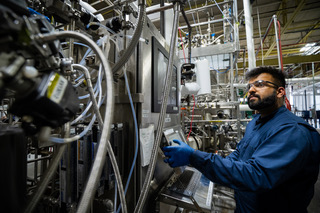
CFIN awards more than $3M to Canadian cellular food projects
By Food in Canada Staff
Food In Canada Specialty Foods Canadian Food Innovation Network Cellular food Myo Palate Nova Scotia Ontario
The Canadian Food Innovation Network (CFIN) is awarding $3,159,379 to two foodtech projects that are creating resiliency within Canada’s food sector through cellular food innovation. The projects are valued at over $6 million and are funded through the organization’s Food Innovation Challenge Program.
The Food Innovation Challenge funding recipients are:
Project Lead: Myo Palate (Ontario)
Project Title: Scaling Cultivated Pork Production Using Embryonic Stem Cells
Project Partners: Getinge Canada Ltd.
Funding: $1,971,084
Myo Palate has successfully addressed a significant production challenge within the cultivated meat sector. By harnessing pig embryonic stem cells (ESCs), known for their perpetual vitality, the Ontario-based foodtech company has overcome the obstacle of muscle cell maturation. This innovation ensures sustained muscle fibre development, as these ESCs and their offspring are cultivated without encountering cellular fatigue. Collaborating with researchers from the University of Toronto, Myo Palate is now applying established machine learning algorithms to refine cell growth conditions, solidifying the effectiveness of this groundbreaking approach.
Myo Palate’s efforts extend beyond transforming cultivated meat production, as they establish Canada as a global leader in sustainable protein advancements. With a robust biological framework in place, the partnership between Myo Palate and Getinge Canada will engineer a bespoke bioreactor process, poised to facilitate large-scale cultivated pork manufacturing. This collaboration exemplifies Canada’s capacity to steer the trajectory of global food production, merging forefront scientific endeavours with environmentally conscious methods.
Project Lead: The Verschuren Centre (Nova Scotia)
Project Title: Automation and Digital Twin Integration for Precision Fermentation Scale Up of Cell-Based Food Ingredients
Project Partners: Liven Proteins, NovoBind Livestock Therapeutics, Material Futures Lab, Dispersa, and Mara Renewables
Funding: $1,188,294
The Verschuren Centre is collaborating with pioneering technology SMEs to harness synthetic biology for advancing cell-based food solutions through precision fermentation. These SMEs specialize in producing essential food molecules such as flavours, binders, pigments, proteins, oils, and polymers from natural sources. The Verschuren Centre’s groundbreaking endeavour involves constructing a unique 10,000L precision fermentation facility, which will be the first-of-its-kind in Canada, to facilitate seamless progression for companies from pilot to commercial production. This capacity-building effort offers accessible open access, expediting process scaling and product purification for food manufacturers.
By integrating advanced automation, digital twin technology, and machine learning, the initiative focuses on optimizing two critical facets: swift fermentation process enhancement and maximized efficiency in material inputs. This approach empowers companies to streamline their market entry, reduce costs, and establish a resilient Canadian supply chain.
This funding call targeted collaborative proposals focused on the development of cellular food products or supporting technology, with the aim of advancing food resiliency and Canadian leadership in this emerging sector. A 2021 report from Ontario Genomics identified cellular food as a potential $12.5 billion opportunity for Canada if we can build the capacity and infrastructure required to biomanufacture animal proteins, flavours, and other foods.
“Funding and supporting cellular food innovation is a critical stride towards sustainable nourishment, bridging the gap between growing demand and limited resources. These two projects are prime examples of how Canada is spearheading a new era of food innovation on the world stage, showcasing how collaboration, novel ideas, and responsible science can redefine how we sustainably feed our growing global population,” said Dana McCauley, CEO, Canadian Food Innovation Network.
Print this page